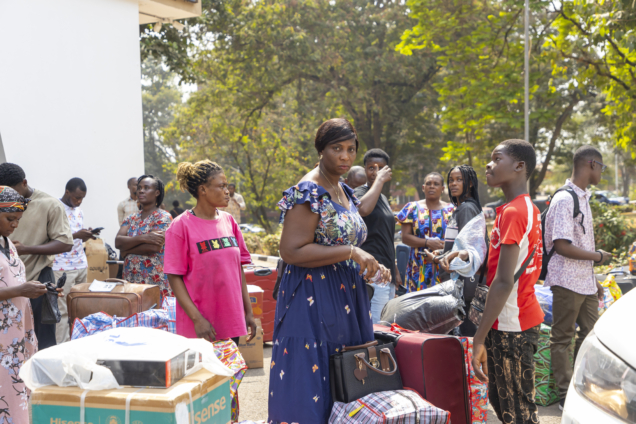Many parents might be great at intermittently calling their wards to check up on them, but the same cannot be said for visits. In both cases, many fail to delve into their academics to determine whether they are doing well or not.
Well, a new Kwame Nkrumah University of Science and Technology study has shed light on the pivotal role of parental involvement in enhancing the academic performance of university students in Ghana, with evidence from KNUST.
The research published in Cogent Education used a sample of 613 students to examine how parental involvement in the form of campus visits, regular calls, and words of encouragement from parents contribute to students' academic performance (measured by their cumulative weighted averages).
The findings were striking: generally, parental involvement positively influenced students’ academic performance.
Specifically, parents visiting their wards on campus improved academic performance by 0.005, while regular phone calls boosted performance by 0.046.
The researchers again found that, encouragement had the greatest impact, improving performance by 0.061.
“These impacts, though seemingly small, highlight the importance of parental support and involvement in a university setting,” Dr Samuel Tawiah Baidoo at the Department of Economics said.
Interestingly, the study also uncovered other factors affecting academic performance.
For instance, it was found that younger students tend to perform better academically. It was further revealed that students who were part of groups or associations (such as academic and religious) exhibited improved academic performance, emphasizing the importance of peer interactions and community involvement.
The research underscores the importance of parents maintaining an active role in their children’s academic journey, even at the tertiary level. By visiting, checking in regularly through calls, and offering encouragement, parents can play a crucial role in ensuring their wards thrive academically.
“This study offers a compelling reminder that parental involvement doesn’t end after high school graduation. Instead, it continues to shape and support students as they navigate the demands of university life, demonstrating that success is truly a family effort,” Dr Baidoo advised.
Other authors in this study are: Dr Paul Kwasi Kumah, Department of Sociology and Social Work, and Prof. Hadrat Yusif, Department of Economics.
Latest Stories
-
Over 150 shops closed at Tech Junction in Kumasi as GRA cracks down on tax defaulters
18 seconds -
Deliberate, value-driven Constitutional Reform required – Clara Beeri Kasser-Tee
1 minute -
Govt to crack down illicit trafficking networks – Vice President assures nation
10 minutes -
BoG warns banks, public against 10 unlicensed money transfer platforms
23 minutes -
Keta Municipal Security Council begins evacuation as dangerous sea tides loom
24 minutes -
Mo Ibrahim Foundation issues key recommendations ahead of Global Financing Summit in Seville
26 minutes -
Paper shortage hits Births and Deaths Registry
26 minutes -
Police arrest 16, including nursing mother, in Damongo drug crackdown
28 minutes -
Cargo truck driver arrested after smashing police vehicle in Damongo chase
39 minutes -
Iranian foreign minister admits serious damage to nuclear sites
47 minutes -
Philanthropist rescues conflict victims and the poor in North East Region
50 minutes -
Support Mahama with good counsel – Women’s Caucus charges Vice President Naana Jane
55 minutes -
15 including teenage nursing mother arrested in Damongo on World Drug Day
1 hour -
Over 4,000 recruited for DRIP; nationwide training underway – Vanderpuye
1 hour -
Tekno drops dance-ready hit with Nollywood star Regina Daniel
1 hour

